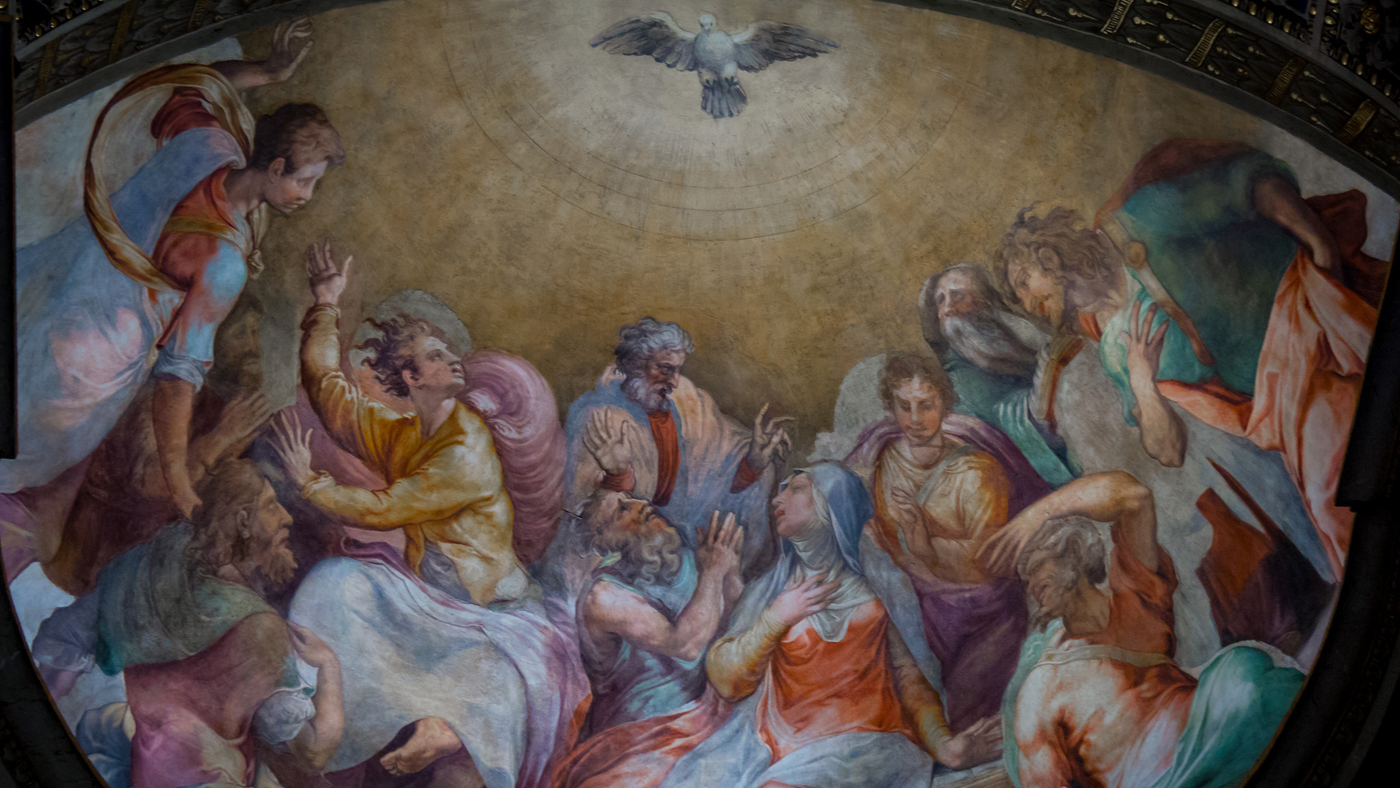The first part of an early Christian worship assembly was open to all, including strangers, who might be converted by the preaching. The second part of the service involved the Lord’s Supper, which only the baptized were allowed to partake, so the unbaptized departed then.
By the early 200s, baptism often included renouncing Satan and all his works, making a statement of faith, being baptized (naked) in water, being clothed in a white robe, receiving anointing with oil, and immediately celebrating the Lord’s Supper.
Many Romans believed Christians were a funeral society because Christian families observed the anniversary of a relative’s death on the third, ninth, and thirtieth (or fortieth) day after the death. They gathered at the tomb, sang psalms, read Scripture, prayed, gave alms to the poor, and ate a meal. Later, this practice developed into feasts to honor martyrs. Perhaps the first such feast was for Polycarp (a bishop burned to death for his faith); it began shortly after his death in about 156.
Christians prepared for Easter, the festival of the Resurrection, by fasting. At first, the fasting lasted one day; later it was extended to 40 hours, to symbolize the 40 days Jesus spent fasting and praying in the wilderness.
Sunday, the “little Easter,” was also a festival of joy. To prepare for it, many Christians fasted on Wednesday and Friday.
Repentance was an involved process in the early church. Sin was seen not as a personal matter but as something that destroyed the unity of the church. Penitents fasted and prayed for the forgiveness of their sins, appeared before the church to make public confession, and were barred from the Lord’s Supper until they gave evidence of a change of heart and were absolved. (The only exception was for people facing persecution. They were readmitted to the Lord’s Supper so they could receive strength.)
In the first century, the Lord’s Supper included not only the bread and the cup but an entire meal. As part of the meal, neighbors who had quarreled made peace again.
Early Christians continued to observe the Jewish Passover. But they did not celebrate the Passover in memory of deliverance from Egypt. Instead, they fasted to commemorate the sufferings of Jesus, the true Passover Lamb.
Christians fiercely disagreed over when to celebrate Easter. Believers in Asia (modern Turkey) celebrated Easter, the “Christian Passover,” on Passover (the 14th day of the Jewish month of Nisan). Victor, the bishop of Rome from 189 to 198, insisted all churches had to celebrate Easter on a Sunday (the first Sunday following the 14th of Nisan). Victor threatened to excommunicate those Christians who observed Easter differently, but the Asian custom continued. The Council of Nicaea in 325 finally decreed that Easter should be celebrated on the first Sunday after the first full moon in spring, the practice today.
In Africa, newly baptized believers were given a drink of milk and honey, symbols of their being children of Christ and citizens in heaven, a land of milk and honey.
The first Christian feast (other than Easter and Pentecost) was a feast in memory of the baptism of Jesus. It was first celebrated on January 6 or sometimes January 10; this became the feast of the Epiphany, which means “manifestation” in Greek. Christmas was not widely celebrated until the late 300s.
When worship was ended, Christians took home the consecrated bread so that those who couldn’t attend worship could partake of the Lord’s Supper. In North Africa, Christians took home the bread so they could celebrate the sacrament every day with their families. Thus, “Give us today our daily bread” carried a deeper meaning.
Dr. John O. Gooch is editor of youth resources for the United Methodist Publishing House in Nashville, Tennessee, and author of Holiness in Tertullian (University Microfilms, 1983).
Copyright © by the author or Christianity Today/Christian History magazine. Click here for reprint information on Christian History.











